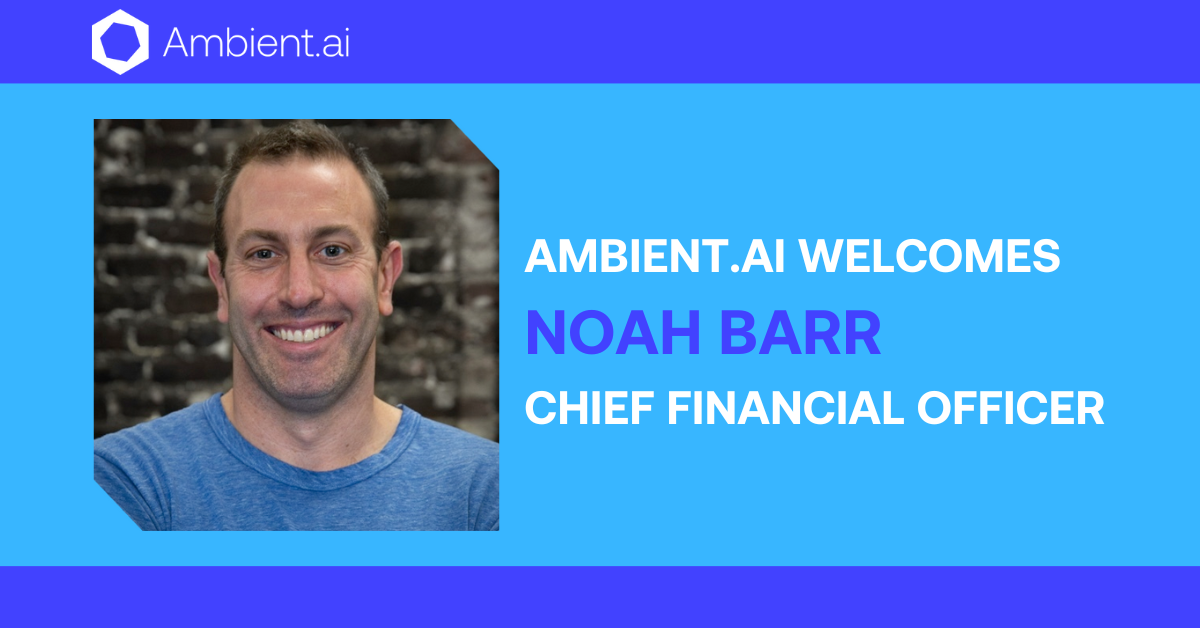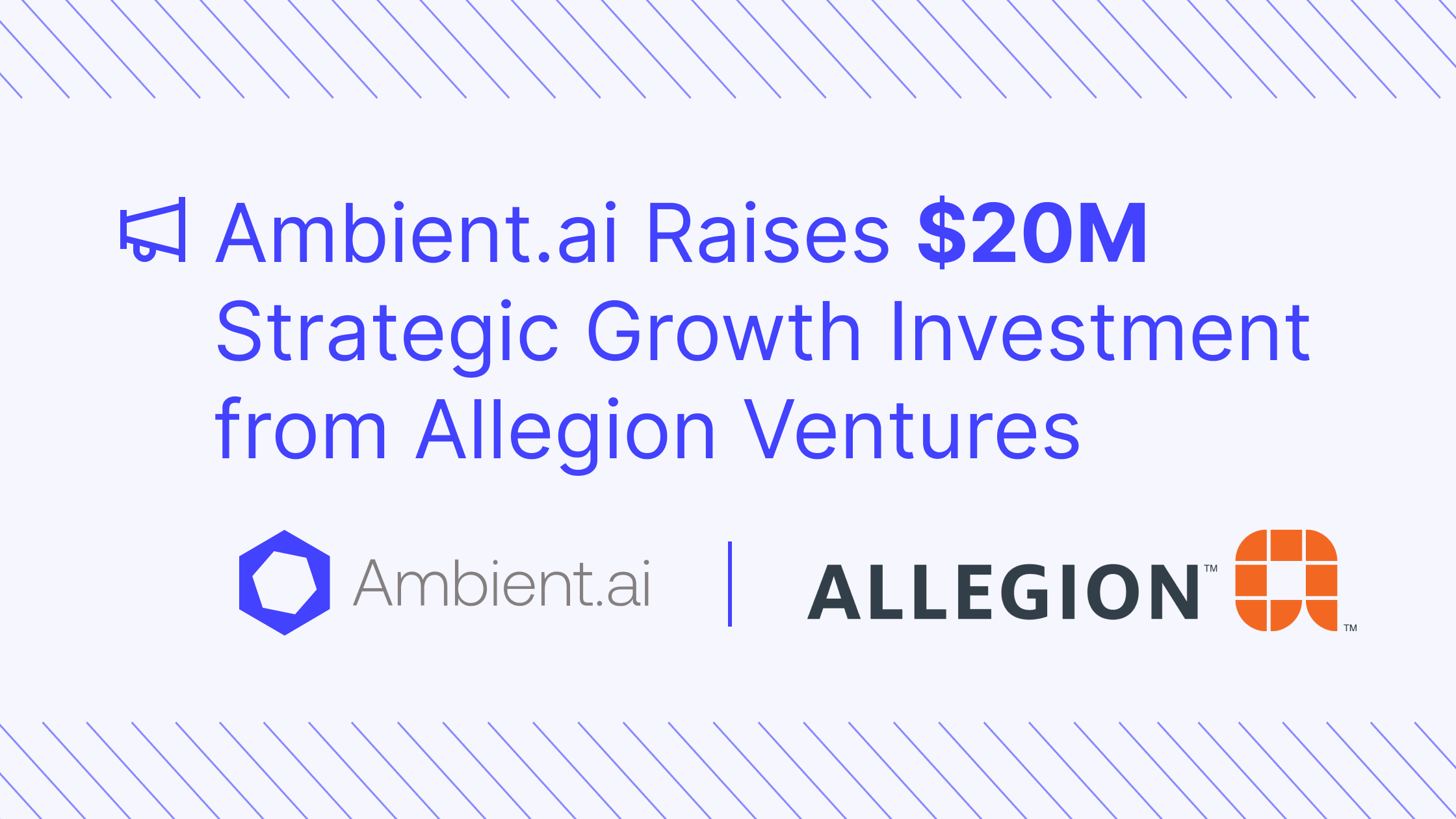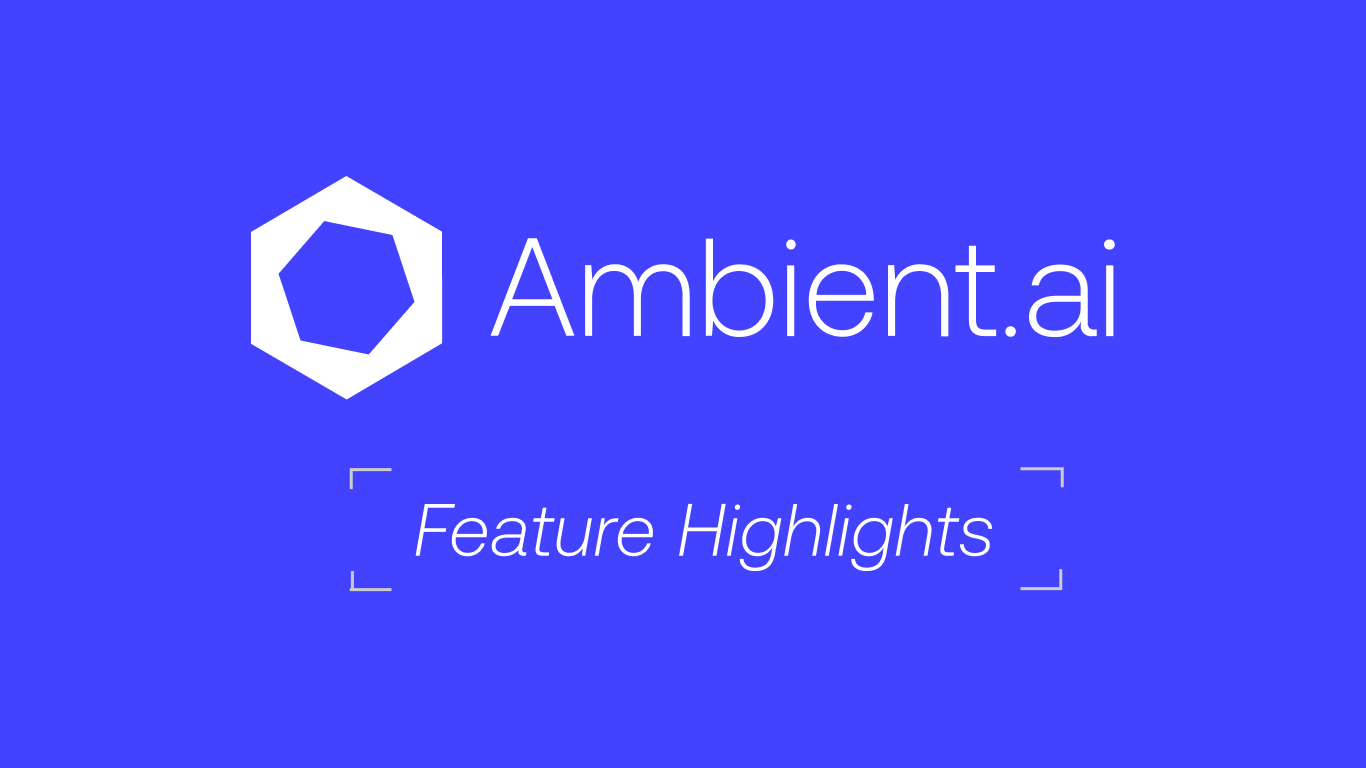Most of my career has been in early-stage startups. I had a brief stint at Cisco which was kind of like my big tech company experience. I ultimately found that I really prefer smaller environments where my impact is a lot more. When I evaluated Ambient.ai, I thought it was a good opportunity for me to start early and grow the company from the ground up. Basically, learn by assisting in the company building process, influencing the culture from the beginning, and ultimately building the product.
What interested me most about Ambient.ai, in particular, was the scope and the mission. The mission of the company is very profound and impactful. It has a lot of ramifications for how people can operate in the future. You know ultimately security, really should be a right, everyone should feel safe in their homes, their workplaces, and their environments.
Where’s your Home Office location?
Currently, I’m based in San Francisco. Working in San Francisco from the bedroom.
If someone asked you about Ambient.ai today, what excites you most about your work at Ambient.ai?
I would say it’s a perfect time to join. We have found that sweet spot where all startup companies want to eventually be. We have product-market fit. We have a profound mission. We have solid customer logos. And we’re also working in technology that is both impactful and new. I think it’s exciting to actually work at an AI-first company.
There’s an opportunity here to really create a new product offering that is AI-first which is really exciting. And we’re at the size of a team where there is still meaningful impact that you can contribute to the product – versus at a big tech company, where you are basically fixing bugs or adding on to an existing product offering.
More specifically, what are the interesting problems that you’re working on?
So for me what I’m really excited about is finally launching the company. The biggest question that I get from a lot of new people that I meet is what do you do? The public launch now shows them what we do and what we’re trying to achieve as a company.
Launching also highlights the building that we’re doing to create a really cohesive product offering. For example, we’ve just completed a lot of work around product onboarding. How do we make the deployment of Ambient.ai a lot easier?
You can imagine that in an enterprise space with our capabilities, well we’re technically a kind of enterprise infrastructure. And in infrastructure, that whole process of onboarding is complicated and can be very difficult. We have an opportunity here to innovate on the way that enterprise infrastructure software gets implemented.
We also have an opportunity to improve the experience of the enterprise administrator.
What’s the best lesson from your past work life that’s informed your work at Ambient.ai?
I think the biggest lesson that I’ve brought with me is about communication and alignment. I’ve had a bunch of experiences in previous roles on both topics. I’ve worked in high-stress, very difficult work environments. I’ve also worked in places where it’s a lot more relaxed and there’s a lot less going on. I found that I really like higher stress situations, but that there’s a tremendous opportunity to make those high stressful situations, a lot more manageable by just over-communicating and aligning with different stakeholders. Ultimately being able to manage expectations is really important in those situations.
In your view, what are the top three qualities of a good leader?
The first quality aligns with what I was talking about before – being able to manage expectations and over-communicate. That’s very important because, as a leader, you’re almost like the gateway to your team for other people. So being able to manage expectations and direct requests is important. Your responsibility is to deliver what needs to be done through a team and to do that, you need to be able to distill the information so that your team ultimately isn’t overloaded.
The second thing I would say that’s most important for leaders that always have a growth mindset. Don’t go with the assumption that you know everything. I think you have an opportunity to learn from everyone, not just your most experienced or your smartest engineers, but also from your new hires. What I found interesting about being a new hiring manager is that I’m learning all the time, even from everyone we’re onboarding. I’m learning different ways that we can improve the onboarding process. I’m learning all the different ways that we can communicate. We’re in this beautiful field of technology that’s constantly evolving so ultimately not being able to grow with what’s changing around you would be a disservice, not to yourself, but also to the team you are managing.
Ultimately, accountability, I think, is the third. Holding yourself accountable for your actions and just being able to own it. When you know there’s nothing wrong with not being able to achieve certain things or having failures. Being able to be accountable for it and to learn from it so that you can improve in the future. That, I think, is what really distinguishes a good leader from a great leader.
What’s your leadership style like?
To define my leadership style, I’ve been taking bits and pieces from books and leaders that I admire, as well as people on the team themselves.
My leadership type of style is defined by autonomy and trust. I try to give ownership to everybody I manage. This was something that was instilled in me from my previous leaders. It empowers individuals to do what they want to do and achieve what they can achieve. But it also allows you to be surprised, in a way, because you might find that the people on your team are actually a lot better than previously advertised. That’s always an amazing outcome for the individual and the team. Because ultimately that’s the kind of thing that will allow us to reach an absurd scale quickly.
What is your favorite Ambient.ai core value and why?
It is really hard to choose just one. I think the first one is probably “create magical customer experiences.” That’s a pretty important value, because ultimately we are where we are, because of our customers. And I really truly think that our customers are actually really partners with us. They believe in our vision. They believe in our mission. And they’re jumping on board to grow this company and this product.
A lot of what we’ve built is really just a result of their inspiration, so you know, it’s on us to build this magical customer experience, and that’s meaningful for us. Particularly on the product team, I feel like that’s kind of our mission statement, that’s our start to define what the product team means. It’s really about delivering magical customer experiences.
When you’re not working, what do you love to do?
It’s a good question I like to do a lot I just don’t have enough time to do everything.
I’m a pretty big sports fanatic, I would say, I really like every sport. Even if it’s a sport that I don’t really understand, I’ll always try to learn the game.
Watching football on Saturday and Sunday, college and NFL usually. I am a big fan of the NBA. I watch baseball. I even follow European Football.
I also play sports. In my spare time, you’ll find me playing pick-up basketball or tennis even.
I think what I’ve really found is that I like the competition aspect of sports. It’s probably why I really like working at startups because it always feels like we’re competing against all these other companies out there.












